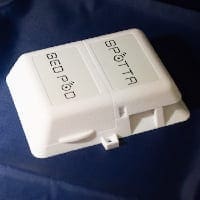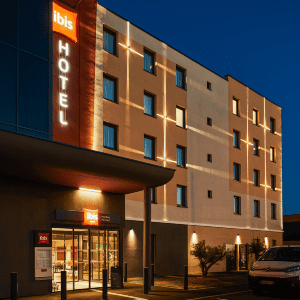The damage from Covid-19 to hotels may not be over once the Government greenlights a return to travel, according to creator of smart pest systems, Spotta. The UK-based company reveals dormant bed bugs will live around a year without feeding, waiting for hotel guests to return.
 “If your hotel had bed bugs before lockdown, you’ll find them again when you reopen,” says Robert Fryers, CEO at Spotta. “With a life span of more than a year, bed bugs are experts at conserving their energy when there’s no food available. And they’ll be hungry when your guests return.”
“If your hotel had bed bugs before lockdown, you’ll find them again when you reopen,” says Robert Fryers, CEO at Spotta. “With a life span of more than a year, bed bugs are experts at conserving their energy when there’s no food available. And they’ll be hungry when your guests return.”
Confirming Spotta’s warning to hoteliers, Dr Richard Naylor, director and chief entomologist at The Bed Bug Foundation, says: “As we’ve seen with ski chalets closed for months during their off-season, I expect the first overnight guests in hotels post-Coronavirus closures will be met by hungry bugs.”
Naylor advised that while bed bugs are known to dislike light, rarely coming out during the day and hiding in the darkest places of hotel rooms such as under mattresses and in headboards, dormant bed bugs will awake from their slumber with an almost insatiable hunger.
He warned: “If they’ve been dormant for months, bed bugs will be highly aggressive, particularly when it’s dark. If really hungry, they may also lose their phobia of light. This means bed bugs are much more likely to bite when a host returns.”
As part of their Coronavirus recovery planning, hotels should allow time for identifying and treating bed bugs before reopening to guests.
But it’s not all bad news for hoteliers, according to Naylor: “Bed bugs are unlikely to be transmitted between buildings as people’s movement is restricted. Whilst dormant, the bed bugs also won’t be moving around your business, so you’re likely to find them where they were before shutting your doors. Having known infestations treated by specialists is key to providing your guests a safe environment to return to, whilst monitoring systems are a good way to ensure guests won’t get savaged as the bed bugs awake looking for a feed.”
Adds Fryers: “Bed bugs are attracted to carbon dioxide their potential host breathes out. They also like heat. To try and trick them into wasting their energy looking for food, you can up the heat in your rooms. However, we don’t advise hoteliers to take this route due to the monetary and environmental costs of heating an empty room. Instead, investing in a smart monitoring system and working with your pest controllers to treat any infestations are key.”
Find out more at www.spotta.co
About Spotta Smart Pest Systems
Our technology allows our network of Pods to automatically identify and quantify pest infestations, even at very low populations. This allows our customers to intervene and resolve the problems earlier, more cheaply and with less environmental impact. Our Bed Pod system is a totally revolutionary new way to pre-empt and minimise the damage bed bugs can cause to guests, reputation and earnings for hotels and other lodging providers. You simply put a Pod in each room and then forget about them – right up to the point where you get an automated email warning you of an unwanted arrival, complete with room number, date and even a photo. You can then resolve the problem before the occupant of the room even knows it is there.

















